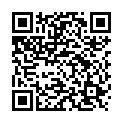|
|
|
| Module code: WIBb21-710 |
|
|
15VS+15US (30 hours) |
|
5 |
| Semester: 7 |
| Mandatory course: yes |
Language of instruction:
German |
Assessment:
Exam
[updated 18.06.2025]
|
|
The total student study time for this course is 150 hours.
|
Recommended prerequisites (modules):
WIBb21-100
[updated 19.11.2025]
|
Recommended as prerequisite for:
|
Module coordinator:
Studienleitung |
Lecturer:
Lehrbeauftragte der htw saar
Lehrbeauftragte
Professoren der Fakultät
[updated 19.11.2025]
|
Learning outcomes:
After successfully completing this module, students will be able to classify marketing as a cross-functional business concept that ensures long-term business security. They will be familiar with the basic principles and objectives of marketing as well as its various areas. They will be able to demonstrate basic knowledge of the four instruments of the marketing mix and explain how they are interrelated.
In a practical component, students will independently develop a strategic/operational marketing plan within the framework of the marketing management process in a real-world case study, applying the knowledge they have acquired in theory.
[updated 18.06.2025]
|
Module content:
Marketing basics:
Marketing development stages
The principle of marketing
Core marketing concepts and terms
Building blocks of a marketing concept:
- Requirements, preferences, and demand
- Offers (products, services, and experiences)
- Customer benefits and satisfaction
- Exchange, transaction, and relationships
- Markets
Purchasing decision process
Marketing perspective
Marketing as a management task: The management process
Marketing environment: Factors influencing marketing decisions
Market segmentation:
Principle and benefits of market segmentation
Market segmentation as the basis for further marketing steps
Marketing strategies:
Strategic corporate planning
Strategic marketing planning
Strategic analysis methods:
- SWOT analysis
- Portfolio analysis
- Product-market matrix
- Competitive strategies according to Porter (??)
- Experience curve (??)
- Product life cycle
Marketing tools - the marketing mix
Basics:
- Product policy
- Pricing policy
- Distribution policy
- Communication policy
[updated 18.06.2025]
|
Teaching methods/Media:
Lectures, seminar-style teaching, digitally supported teaching, self-study
[updated 18.06.2025]
|
Recommended or required reading:
- Kotler, P. et al (aktuelle Auflage): Grundlagen des Marketing, München: Pearson Studium
- Walsh, G., Deseniss, A., Kilian, Th. (aktuelle Auflage): Marketing, Eine Einführung auf der Grundlage von Case Studies, Berlin: Springer Gabler
- Meffert, H. et al. (aktuelle Auflage): Marketing. Grundlagen marktorientierter Unternehmensführung. Wiesbaden: Gabler.
- Esch, F.-R., Herrmann A., Sattler H. (aktuelle Auflage): Marketing, München: Vahlen
[updated 18.06.2025]
|

